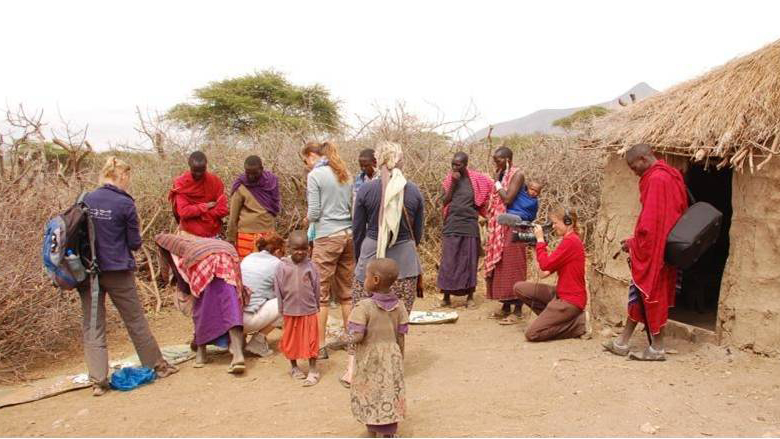Eliamani's Homestead
DOI:
https://doi.org/10.15845/jaf.v3i1.1488Keywords:
stereotypes, reflexivity, observer paradox, cultural tourism, visual anthropologyAbstract
'Eliamani's Homestead' was shot as a result of long-term anthropological research in Tanzania and the translations were created in close cooperation with the Maasai research participants. Originally recorded for research purposes for a project on the relationship between images of and interactions with ‘the other’, the 20-minute single-shot includes jerky camera movements, but was left uncut and without voiceover in order to give the viewer a real-time experience of 'being there'. Within anthropology, the documentary invites to reflect on parallels between anthropology and tourism, and spurs debates regarding reflexivity. It addresses elements of the 'observer paradox' through the almost complete invisibility of the researcher’s camera, which stands in stark contrast with the obtrusive tourist cameras. That is, until Eliamani looks straight into the lens and dismissively comments upon the researcher’s camera too, making researcher and the documentary’s public part of the voyeuristic 'problem' as well. Outside anthropology, it invokes debates about how we see and interact with 'the other' in (cultural) tourism as well as in wider contexts. It thus addresses the question whether and how audiovisual data segments could be used to share anthropological knowledge inside and outside the discipline and academia.

Downloads
Additional Files
Published
How to Cite
Issue
Section
License
Copyright (c) 2019 Vanessa Wijngaarden

This work is licensed under a Creative Commons Attribution-NonCommercial-NoDerivatives 4.0 International License.


